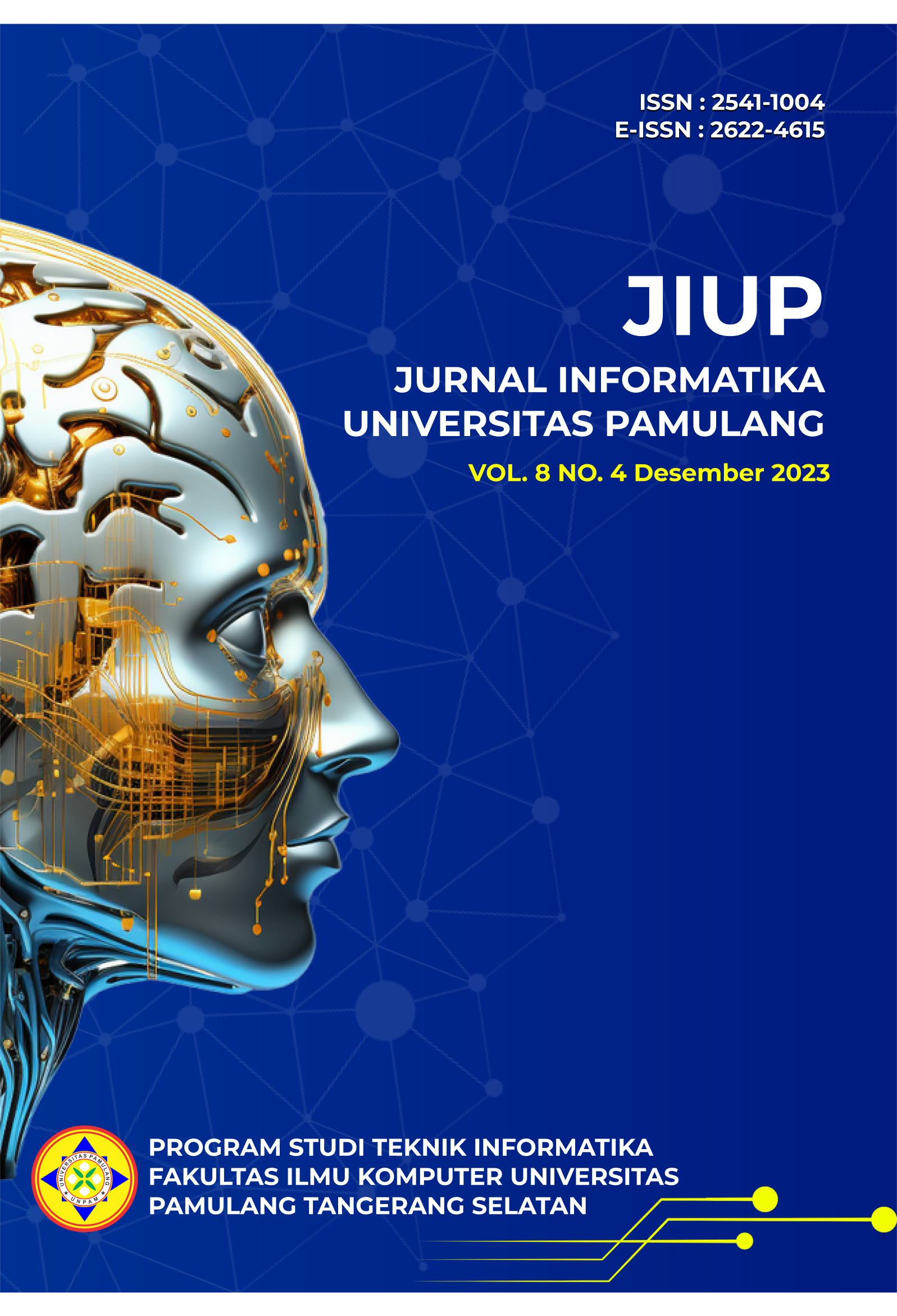Analisa Penyerangan untuk Cyber Security Social Engineering
DOI:
https://doi.org/10.32493/informatika.v8i4.35931Keywords:
Ancaman Rekayasa Sosial, Kebijakan Keamanan, Solusi Rekayasa Sosial.Abstract
In the increasingly advanced digital era, threats to cyber security are increasing. One frequently used attack technique is social engineering, which involves psychological and social manipulation of individuals to gain confidential information or access to computer sistems. To counter this threat, there needs to be an effective solution. This study presents a critical analysis of such measures and tools to better address these issues. To combat cybersecurity social engineering, organisations have policies in place. These policies are implemented through a sistematic approach to ensure the protection of sensitive information. After conducting a comprehensive evaluation of recent research studies on the subject, our examination revealed the need to offer. To ensure an understanding of social engineering risks and the optimal methods to deal with them, employee training is essential. To prevent falling victim to harmful schemes, it is important to take protective measures. These measures can include introducing awareness programmes, educating non-technical personnel, implementing new security networks, using specialised software, and enforcing security protocols. The issue of social engineering is a major threat that cannot be ignored. It is important to take this issue seriously and implement measures that can protect individuals and organisations.
References
Anggraeni Vigim, J., Sofia, A., Nelly Nur Apandi, R., & Purnomo, B. (2021). Identifikasi Risiko Sistem Informasi Teknologi pada Perguruan Tinggi. Jurnal Ilmu Manajemen dan Bisnis (Vol. 12).
Anggraini, D., & Sutabri, T. (2024). IJM: Indonesian Journal of Multidisciplinary Pengembangan Aplikasi Penyaringan Spam e-Mail Menggunakan Teknik Machine Learning dengan Metode Support Vector Machines. IJM: Indonesian Journal of Multidisciplinary, 2. Retrieved from https://journal.csspublishing/index.php/ijm
Dwi Madya, A., Djoko Haryanto, B., Ningsih, D. P., & Sinlae, F. (2023). Keefektifan Metode Proteksi Data dalam Mengatasi Ancaman Cybersecurity. INDOTECH Indonesian Journal of Education And Computer Science, 1(3), 2023.
Hadiprakoso, R. B., Qomariasih, N., Yasa, R. N., Kriptografi, R., Siber, P., Negara, S., & Usa, J. H. (2021). Identifikasi Malware Androidmenggunakan Pendekatan Analisis Hibrid Dengan Deep Learning.
Henderson, P., Chugg, B., Anderson, B., Altenburger, K., Turk, A., Guyton, J., … Ho, D. E. (2023). Integrating Reward Maximization and Population Estimation: Sequential Decision-Making for Internal Revenue Service Audit Selection. Retrieved from www.aaai.org
Kaur, J., & Ramkumar, K. R. (2022, September 1). The recent trends in cyber security: A review. Journal of King Saud University - Computer and Information Sciences. King Saud bin AbdulazizUniversity. https://doi.org/10.1016/j.jksuci.2021.01.018
Magister, P., Diajukan, A., Rahmadani, O., & Sekar Putri, N. (2022). Analisa Pola-Pola Sosialisasi Pencegahan Modus Social Engineering Oleh Bank Melalui Media Website dan Media Sosial Twitter Tesis S2.
Nissim, K., & Wood, A. (2018). Is privacy privacy? Philosophical Transactions of the Royal Society A: Mathematical, Physical and EngineeringSciences,376(2128). https://doi.org/10.1098/rsta.2017.0358
Putu, I., Pratama, A. E., Eka, G., & Arista, Y. (2019). Penerapan Proxy Server Berbasis Clearos 7 Untuk Manajemen Akses Pada Internet. Jurnal Mantik Penusa, 3(1), 66. Retrieved from www.clearos.com
Razzaq, A., Aditya, M., Widya, A., Kuncoro Putri, O., Musthofa, D. L., & Widodo, P. (2022). Serangan Hacking Tools sebagai Ancaman Siber dalam Sistem Pertahanan Negara (Studi Kasus: Predator). Global Political Studies Journal,6. https://doi.org/10.34010/gpsjournal.v6i1
Slamet. (2022). Pertahanan Pencegahan Serangan Social Engineering Menggunakan Two Factor Authentication (2fa) Berbasis Sms (Short Message System). Nopember (Vol. 14).
Surya Mahendra Muhammad Wali Harry Idwan, G., & Eka Yuliastuti Dimas Sasongko Gede Arna Jude Saskara Alfina, G. (2022). Keamanan Komputer.
Tyas Darmaningrat, E. W., Noor Ali, A. H., Herdiyanti, A., Subriadi, A. P., Muqtadiroh, F. A., Astuti, H. M., & Susanto, T. D. (2022). Sosialisasi Bahaya dan Upaya Pencegahan Social Engineering untuk Meningkatkan Kesadaran Masyarakat tentang Keamanan Informasi.Sewagati,6(2). https://doi.org/10.12962/j26139960.v6i2.92
Wibowo, M. H., & Fatimah, N. (2017). ANCAMAN Phishing Terhadap Pengguna Sosial Media Dalam Dunia Cyber Crime (Vol. 1).
Downloads
Published
Issue
Section
License
Copyright (c) 2023 Afrizal Zein

This work is licensed under a Creative Commons Attribution-NonCommercial 4.0 International License.
Authors who publish with this journal agree to the following terms:
- Authors retain copyright and grant the journal right of first publication with the work simultaneously licensed under a Creative Commons Attribution-NonCommercial 4.0 International (CC BY-NC 4.0) that allows others to share the work with an acknowledgement of the work's authorship and initial publication in this journal.
- Authors are able to enter into separate, additional contractual arrangements for the non-exclusive distribution of the journal's published version of the work (e.g., post it to an institutional repository or publish it in a book), with an acknowledgement of its initial publication in this journal.
- Authors are permitted and encouraged to post their work online (e.g., in institutional repositories or on their website) prior to and during the submission process, as it can lead to productive exchanges, as well as earlier and greater citation of published work (See The Effect of Open Access).
Jurnal Informatika Universitas Pamulang have CC-BY-NC or an equivalent license as the optimal license for the publication, distribution, use, and reuse of scholarly work.
In developing strategy and setting priorities, Jurnal Informatika Universitas Pamulang recognize that free access is better than priced access, libre access is better than free access, and libre under CC-BY-NC or the equivalent is better than libre under more restrictive open licenses. We should achieve what we can when we can. We should not delay achieving free in order to achieve libre, and we should not stop with free when we can achieve libre.
Jurnal Informatika Universitas Pamulang is licensed under a Creative Commons Attribution-NonCommercial 4.0 International (CC BY-NC 4.0)
YOU ARE FREE TO:
- Share : copy and redistribute the material in any medium or format
- Adapt : remix, transform, and build upon the material for any purpose, even commercially.
- The licensor cannot revoke these freedoms as long as you follow the license terms





